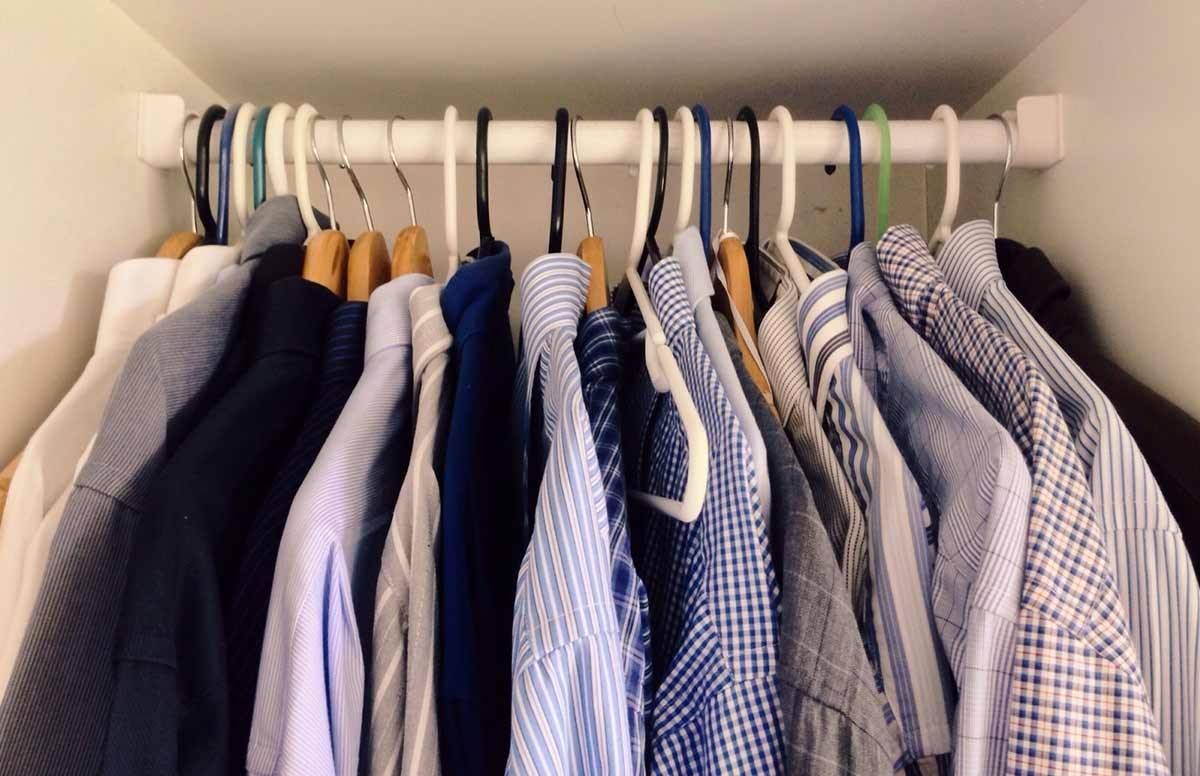The Life-Challenging Anguish of Tidying Up
After a loved one’s death, how do you part with the possessions?
After the loss of a special someone, the painful task of sifting through and parting with that someone's special somethings lies in wait. Which clothes to keep? Which work files to discard? What to do with the no longer needed wallet, passport, bedside alarm clock? And when do you begin to tackle the possessions after a loved one's death? Where is Miss Manners when you really need her?

The buoyant advice Marie Kondo offers in her bestselling book, The Life-Changing Magic of Tidying Up (hold on to only those items that provide "joy" and, with a parting "thank you," get rid of the rest), is a tough sell for the bereaved. For a while, every item left behind by the departed stirs a raw mix of bittersweet memory and anguished longing. Nothing feels dispensable.
Perhaps for a time you feel reassured when you enter his closet, the presence of his shirts offering a sense of security that — somehow — he is still there. Or when you open a bureau drawer and come upon the sweater you gave her for her birthday, you feel a small lift as you remember the night she first wore it.
Inevitably, though, there comes a time when those items, once so dear, begin to bear an onerous weight.
The Weight of Things After a Loved One's Death
There you are, stoically getting along with your day, when you open a closet door only to collide with an unwanted reminder that he is no longer there or that she is still gone. At some point, you begin to wonder if keeping all those objects around you is serving a purpose or prolonging the sentence of grief.
Next stop: guilt.
How could you even think of getting rid of his or her possessions? Never mind that they might serve a useful purpose in someone else's life. (Those shirts might fit your son; that necklace might look lovely on your niece.) Wouldn't dispensing with those items be like, well, throwing your loved one away? What kind of loving spouse would do that?
Wretched stuff, this business of cleaning out the effects of your departed loved one. Sometimes it feels like you're damned if you do, damned if you don't. Rest assured, like everything else about grief, there are no rules. Whatever you decide — and I mean you, not what some well-intended or buttinsky relative might have to say about the matter — is just the way it should and needs to be.
Time to Let Go
For me, the need to clean out my late husband's closet struck relatively early after his death in 2009. As I lay in what was once our bed, I felt more disconcerted than reassured by the presence of Joe's unused clothes hanging in the closet just steps away. The thought of his things — but not him — so close by began to weigh heavy. A few months after his death, finding that physical activity helped me cope with my sorrow, I decided to clean out Joe's bedroom closet and drawers.
I did not make a big deal of this. Briskly, I selected the items I wanted to hold on to. (With me, his T-shirts were a biggie. Seven years on, I often still sleep in them.)
Then, I opened Joe's closet successively to my younger brother, two of my nephews and two male friends, all of whom were roughly Joe's height and weight. Please, I encouraged them, take whatever might be of use to you.
In each instance, I did not hang around to see what they claimed. I did not want to know. I did not care. I just wanted to know that the items would be put to good use and would be removed from my line of vision.
Next, I tackled the mounds of boxes in the attic crammed with Joe's play and novel drafts; research materials and reporter notebooks for his stories dating back as many as 45 years. I quickly sifted through each in search of photos, either for me or for others, and any other items that had meaning to me. Then, I became ruthless. I did not pore over the notebooks trying to decipher his handwriting or reconstruct his line of thinking (as I've known other widows to do for years with their husbands' papers). I simply carried the boxes down the stairs and dumped them on the curb for garbage pick-up.
A License to Purge
At times, I wondered if my rush to discard was callous. These were Joe's things! They had meaning to him! Then I would remind myself of the entreaties I used to make: "Please, get rid of some of that stuff! All that paper is a fire hazard!" I'd remember his dogged response that, at some point in time, any one of those pieces of paper might demonstrate their ongoing value. (In the 28 years we were together, that happened exactly once — a happenstance he never let me forget.) Onward I would go, muttering curses every step of the way as I —not he — hauled those heavy, dusty boxes down three flights of stairs.
My zeal was no doubt assisted by a gift that Joe had given me shortly before his death. Prone in a hospital bed, he'd itemized the items he wanted saved (his camera for our daughter, his theater books for his cousin, his genealogical research for his sister), and told me, "Everything else, throw it away." Absent that license to purge, I suspect that I would have hesitated and not discovered that with all those receipts, tax records, writing drafts, research books and faded reporter notebooks gone, the weight of his presence (or absence) had lightened a bit.
Later, two widowers would tell me that they began the same process of culling within days of their wives' deaths. (It made me wonder whether most men have an easier time letting go of their spouse's effects.) A widow confided that the first thing she did after her husband's death was discard the sheets and quilt in their bedroom and then purchase new bedding. I found that interesting; the idea had never crossed my mind.
The Decision Is Yours
Another widow, now eight months distant from her husband's death, told me that these days she finds herself deliberating over not only her husband's effects, but over the clothing and jewelry he gave her, uncertain if she will ever again be able to put them on without feeling pain. That, too, is an anguish I didn't confront. (Eight months on, I found that wearing a piece of jewelry gifted to me by Joe provided pleasure. Seven years later, it still does.)
Recently, this widow tackled her first "decluttering" task, clearing out the cabinets of the bathroom she shared with her husband. She found it easy to let go of his medical supplies, not so easy to part with his toiletries. As for the sheets that had been on the bed the night he died, she is undecided whether to keep them or give them away. She continues to mull over what to do with the clothes in their shared closet.
"I think one day," she said, "I'll have a burst of determination and clean it all out."
"You'll know when you're ready," I responded. "Until then, if you don't feel inclined to remove the items, don't."
As with grief, so with the task of deciding when to part with a loved one's possessions: The timetable needs to suit only one person. You. The choices you make about how that space might better serve your needs now that he or she is gone are just that — yours.
Being left behind isn't easy. You do what you have to do. There is no right; there is no wrong. There is only what feels least unsettling for you.


